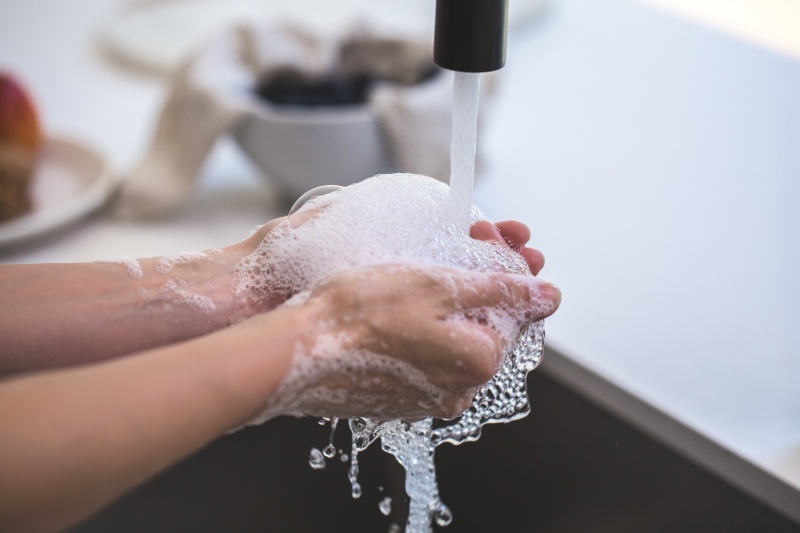The novel coronavirus (COVID-19) is top of mind for nearly everyone right now. Neighborhood cleanups through May 9 have been postponed, and dozens of community events have been cancelled or postponed.
While you may feel overwhelmed and anxious as life is disrupted in myriad ways, it’s important to remember to stay calm and do what you can do to prevent infection and transmission.
- Stay informed. Visit health.springfieldmo.gov/coronavirus for the latest local information and recommendations.
- Use good hand hygiene and etiquette (wash your hands frequently or use hand sanitizer that contains at least 60% alcohol, cough and sneeze into your elbow, avoid touching your face, wipe surfaces you touch regularly, throw away used tissues).
- If you’re sick, stay home.
- Practice social distancing (try to stay at least 6 feet away from others when out). Social distancing is an effective tool for preventing the spread of disease. It can include large-scale measures like canceling group events or closing public spaces, as well as personal decisions like avoiding crowds.
- Follow the guidelines of your local jurisdiction. In Springfield and Greene County, a Stay at Home Order is in place through April 24. Read the list of FAQs about the order here.
- Help elderly and at-risk friends, family and neighbors by offering to bring them groceries, medicine and other supplies so they can stay at home.
We are fortunate that have the right experts at the Springfield-Greene County Health Department and other public and private service agencies to chart our path forward as a community. We are doing what we do best and that is to collaborate and take preventative action.
Additional recommendations from the Springfield-Greene County Health Department regarding coronavirus/COVID-19 include:
- Avoid convening in groups of 10 or more.
- Avoid touching your face with unwashed hands.
- Clean and disinfect household surfaces with bleach or disinfectant wipes.
- If you are a high-risk individual (60 and older, have a chronic illness or are immune-compromised), you are urged to take extra precautions. These are:
- Stay home as much as possible and avoid unnecessary travel
- Take extra measures to put distance between yourself and other people.
- Consider alternative ways of getting food and supplies brought to your house through family, social, or commercial networks or by using delivery or pick up services at stores.
- Have a plan if you get sick (fever, shortness of breath, cough):
- Consult with your health care provider for more information about monitoring your personal health for symptoms suggestive of COVID-19.
- Stay in touch with others by phone or email. You may need to ask for help from friends, family, neighbors, community health workers, etc. if you become sick.
- Determine who can provide you with care and bring supplies if your caregiver gets sick.
- Contact your health care provider to ask about obtaining extra necessary medications to have on hand.
- If you cannot get extra medications, consider using mail-order for medications.
- Be sure you have over-the-counter medicines and medical supplies (tissues, etc.) to treat fever and other symptoms.
- Have enough household supplies and groceries on hand so that you will be prepared to stay at home for a period of time.
- Take everyday precautions:
- If you must leave your home, avoid touching high-touch surfaces in public places – elevator buttons, door handles, handrails, handshaking with people, etc. Use a tissue or your sleeve to cover your hand or finger if you must touch something.
- Wash your hands after touching surfaces in public places.
- Clean and disinfect your home to remove germs: practice routine cleaning of frequently touched surfaces (for example: tables, doorknobs, light switches, handles, desks, toilets, faucets, sinks and cell phones).
- Pay attention for potential COVID-19 symptoms including, fever, cough, and shortness of breath. If you feel like you are developing symptoms, call your doctor.
- If you develop emergency warning signs for COVID-19 get medical attention immediately. In adults, emergency warning signs are:
- Difficulty breathing or shortness of breath
- Persistent pain or pressure in the chest
- New confusion or inability to arouse
- Bluish lips or face.
Coping with stress
This is a stressful time. Taking care of yourself, your friends, and your family can help you cope. Helping others cope with their stress can also make your community stronger.
Other tips for dealing with stress and anxiety include:
- Take breaks from watching, reading, or listening to news stories, including social media.
- Take care of your body. Take deep breaths, stretch, or meditate. Try to eat healthy, well-balanced meals, exercise regularly, get plenty of sleep, and avoid alcohol and drugs.
- Make time to unwind. Try to do activities you enjoy.
- Connect with others. Talk with people you trust about your concerns and how you are feeling.
Ideas for safe activities
- Take a walk
- Go for a hike
- Do yard work
- Play in your yard
- Clean your house
- Read a book
- Listen to music
- Cook a nice meal
- Family game night
- Go for a drive
- Group video chat
- Stream a show.


